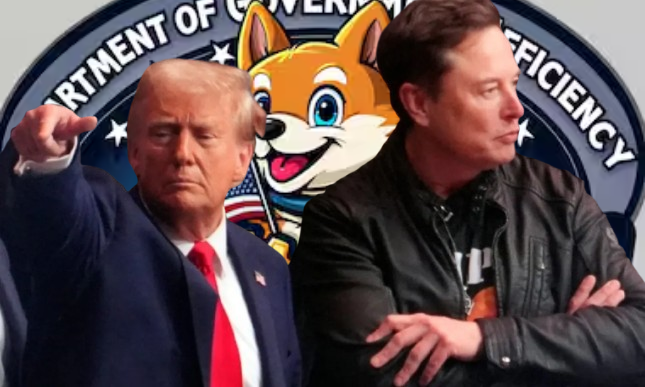
- Tensions reportedly grew between Elon Musk and President Trump over tariff policies, as Musk, whose Tesla operations in China could be impacted, publicly criticised the tariffs, arguing they wouldn’t benefit the U.S.
- Many questioned how an unelected individual could contribute such a large amount to a political campaign and then be allowed to influence administrative decisions.
- Caught in a conundrum, Musk appeared to reconsider his political involvement after facing nationwide backlash and financial losses that undermined the economic gains he had hoped to achieve by supporting President Trump.
Elon Musk, the billionaire known for his vocal and articulate expression of views, made international headlines in July of last year when he openly supported President Trump’s presidential campaign. This occurred after an assassination attempt was made on President Trump during that month.
From initially voicing support, Musk went a step further by becoming financially involved in the campaign. He claimed to have donated $150 million to President Trump’s campaign, stating, “As an American, it’s my responsibility to support Trump.” However, ever since Musk aligned himself with the Trump administration, his decision has drawn significant criticism and scrutiny.
Many questioned how an unelected individual could contribute such a large amount to a political campaign and then be allowed to influence administrative decisions. Critics argued that this undermined the democratic values of the country and gave undue power to a billionaire within the federal system.
From initially voicing support, Musk went a step further by becoming financially involved in the campaign.
Things escalated further after Trump’s victory, when it was decided that Elon Musk would head a newly created government department called the Department of Government Efficiency (DOGE), focused on reducing inefficiency. This department was tasked with eliminating unnecessary bureaucratic burdens on the American treasury and shutting down non-functional federal agencies, aiming to create a more transparent and effective bureaucracy.
Initially, Republican leader Vivek Ramaswamy was involved in leading the reforms under this department, but he made a surprising U-turn and stepped away from the project. Elon Musk later claimed that his reforms had saved billions of dollars for the American government. However, many of these reforms were highly controversial, and people questioned how an unelected person like Musk could gain access to the federal institutions of the United States. This raised concerns about the concentration of power in the hands of the wealthy and the erosion of democratic norms.
Tensions between Elon Musk and President Trump reportedly began to surface, particularly over Trump’s tariff policies. Musk, a known critic of tariffs, publicly disagreed with both the President and his Treasury Secretary, arguing that such policies would not benefit America. Some suggested that Musk’s criticism stemmed from his business interests in China, where Tesla operates a major factory. They claimed the tariffs would directly harm his ventures, especially Tesla.
Caught in a conundrum, Musk appeared to be reconsidering his involvement in politics.
Others speculated that Musk’s entry into politics was not just ideological but also motivated by a desire to protect and expand his business interests. As these differences became more pronounced, protests against Musk and his companies began to spread across America. These protests, which were believed to have been organised by opposition groups, specifically targeted Tesla and SpaceX. Activists and students led demonstrations, and disruptive elements began creating disturbances in Musk’s factories, reflecting public disappointment with some of the Trump administration’s decisions.
These protests had a significant economic impact on Musk. The stock value of Tesla and SpaceX dropped sharply, and their net worth declined by nearly $150 billion since Trump’s return to the White House. Additionally, due to the new tariffs, Tesla faced difficulties exporting its vehicles to international markets, further impacting profitability.
Caught in a conundrum, Musk appeared to be reconsidering his involvement in politics. One of the key reasons he supported President Trump was to ensure economic gains, but the outcome seems to have backfired. The nationwide backlash against his companies and the subsequent financial losses suggest that his political involvement may have cost him dearly. As a result, Musk has now decided to step away from his role in the government efficiency department, possibly to refocus on his economic priorities and restore stability to his businesses.
Aayush Pal is a freelance writer on contemporary geopolitical developments. The views expressed in his work are entirely his own.
